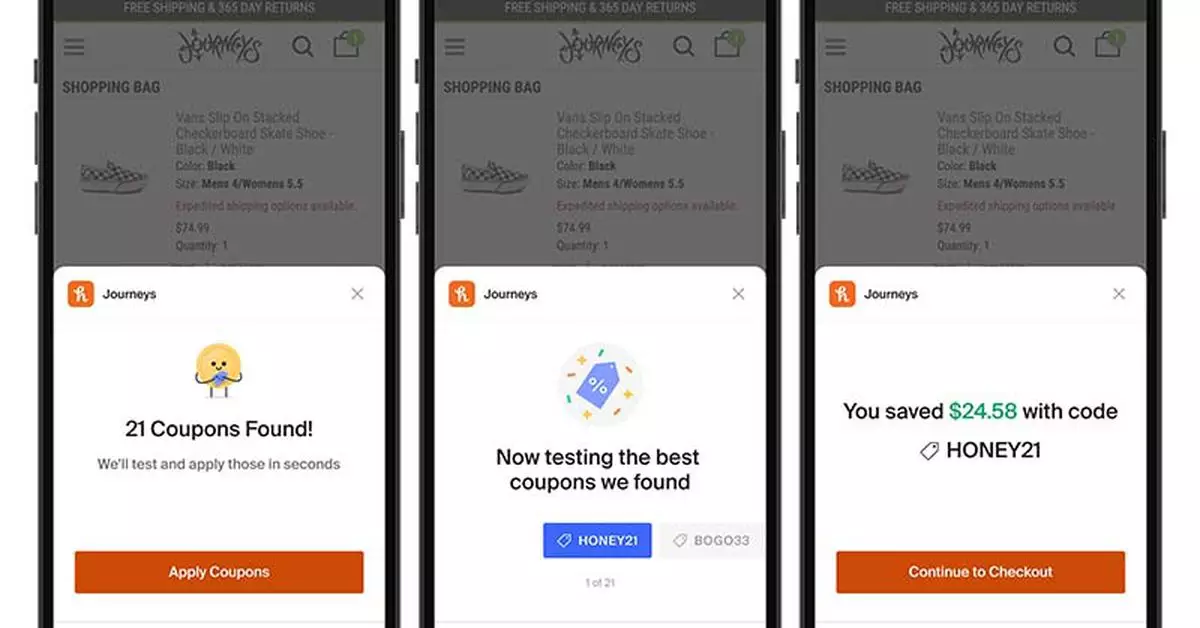The rise of online shopping has given birth to numerous browser extensions designed to assist consumers in scoring deals. Among these, PayPal Honey has emerged as a prominent tool, marketed as a savior for bargain hunters. However, recent allegations have cast a shadow over Honey’s integrity, prompting questions regarding its operational ethics and the impact on affected influencers. As we examine the argument surfaced by YouTuber MegaLag and further testimonies, it unveils an unsettling reality buried beneath the flashy surface of this seemingly harmless extension.
At its core, PayPal Honey touts itself as an automated solution for discovering coupon codes during online transactions. Its pitch suggests a straightforward promise: effortlessly unlock savings by allowing the extension to scan for available promotional codes during checkout. However, the experiences shared by MegaLag and numerous online users indicate that Honey’s actual performance is inconsistent at best. Many shoppers report that, more often than not, Honey fails to generate useful codes or defaults to Honey-branded offers, which may not be the most advantageous deals available.
This brings into question whether Honey’s claims of “finding every working promo code on the internet” are genuine or overly ambitious. As MegaLag highlighted, the underlying partnership dynamics between Honey and its retail clients could influence what deals are presented to users. The suggestion that Honey might intentionally suppress superior options to maximize its own profits raises eyebrows about the authenticity of its services.
The most troubling aspect of the recent fallout surrounds the alleged hijacking of affiliate revenues. MegaLag’s video alleges that when users click on affiliate links provided by influencers, Honey stealthily replaces these links with its own tracking mechanisms. As a result, any sale made from such interactions will be credited to Honey rather than the original influencer. This practice not only undermines the work of content creators who rely on affiliate commissions but also dilutes the trust between influencers and their audiences.
Josh Criscoe, PayPal’s VP of corporate communications, defended Honey’s practices, claiming adherence to industry standards, including last-click attribution. However, it’s difficult to overlook the growing discontent voiced by digital creators who rely on affiliate marketing as a livelihood. MegaLag is not alone in his claims; discontent from influencers has simmered for years, leading to the disassociation of brands like Linus Tech Tips, with reports asserting that they severed ties due to questionable affiliate practices associated with Honey.
The allegations surrounding PayPal Honey do not simply serve as a reminder of one extension’s failings but echo a much larger conversation about trust and transparency in the digital marketplace. As consumers become increasingly reliant on technology to assist them in making informed purchasing decisions, the ethical compass guiding these tools needs scrutiny. In a landscape where consumers are often inundated with marketing tactics that blur the lines of genuine savings, it becomes imperative for companies like PayPal Honey to uphold transparency, especially when their services deeply affect both shoppers and digital creators alike.
As we scrutinize the effectiveness and sincerity of such extensions, it is essential for users to remain vigilant. MegaLag’s video has ignited a necessary dialogue about whether browsers like Honey prioritize consumer benefit or company profit. Moreover, influencers must be aware of how their affiliate partnerships function, ensuring they are not blindsided by practices that silently catapult their deserved earnings into the coffers of another.
The case against PayPal Honey is emblematic of a broader trend in the e-commerce world, where profit often seems to take precedence over ethical considerations. As the digital marketplace evolves, stakeholders—ranging from developers to consumers—should advocate for fair practices that prioritize trust and transparency. The implications of Honey’s alleged actions resonate far beyond one platform; they speak to the pressing need for integrity in an industry that faces scrutiny and analysis at every turn. In an age where consumers are seeking genuine savings and influencers are fighting for their rightful earnings, the call for ethical practices has never been more crucial.


Leave a Reply